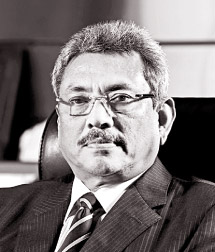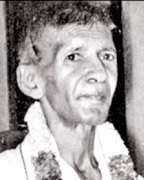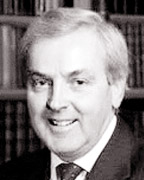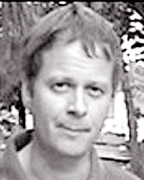Gotabhaya humbles BBC on threat to Tamil position in
North

It was a tendentious move from the outset. The BBC was committed to
show the world that that the Tamils in the North of Sri Lanka were
threatened by Sinhala settlers. This was made clear by Nick Gowing the
presenter of BBC’s flagship news programme, who introduced Charles
Havilland’s interview with Defence Secretary Gotabhaya Rajapaksa earlier
this week, with a preface about the alleged attempt to change the
demography of the North of Sri Lanka.
The avuncular Gowing was ready with his red map of Sri Lanka and
pointing to the North as the traditional home of the Tamils, and from
there the line was as set for Charles Havilland.
The entire programme was in sync with the line being peddled by the
pro-LTTE Tamils in the UK and elsewhere about the so-called plight of
the Tamils in Sri Lanka, especially in efforts to prevent the deporting
of failed Tamil asylum seekers from the UK to Sri Lanka.
|

Defence and Urban Affairs Ministry Secretary Gotabhaya Rajapaksa |
The interview was well planned and timed. There was the TNA
conference in Batticaloa where one saw a return to the politics of the
Chelvanayakam era, with insistence of the re-merger of the North and
East and the refusal to accept a unitary Sri Lanka. The federal slogan
was played hard, and for this purpose the story of the position of
Tamils in the North being challenged by Sinhala people was good grist to
the mill of falsehood.
Tamil pubic officers
If BBC correspondent in Colombo Charles Havilland thought he had the
advantage over Defence Secretary Rajapaksa with the reference to reports
about the recent replacement of Tamil pubic officers in the North by
Sinhala personnel, and the overall angle about the majority status of
Tamils in the North being threatened, he was surely making a mistake.
Mr. Rajapaksa was quite clear in his response: “Earlier before the
war, all (officers) were Sinhalese,” Mr. Rajapaksa said. Just as “a lot
of” Tamil officers worked in Southern districts, Sinhalese and Muslims
should be able to work in the North. “It is part of Sri Lanka.”
So were Tamils correct to view the north as a predominantly Tamil
place?
Why should that be, the Defence Secretary questioned. “If you are a
Sri Lankan citizen you must be able to go and buy the properties from
anywhere. I’m not talking about the forced settlements; I’m talking
about the freedom for a Sri Lankan to live anywhere in this country.”
It was a fact very clearly and simply stated. Whether it is the BBC
or any other media institution it is necessary to make the proper
background checks before raising such questions. Nick Gowing as
presenter and Charles Havilland the correspondent doing the interview
had not bothered to look at the demographics of other parts of Sri
Lanka, at least from the time of independence.
Had they bothered to do a little research, they would have learnt how
the demographic patterns in the Colombo District and Colombo City had
changed dramatically over the past five to six decades, making the
minority communities predominant in Colombo City, and a very strong
presence in the Colombo District.
This is part of the natural change of demographic patterns in keeping
with economic and social conditions that prevail.
It is not being used to make a case about the Sinhala people being
threatened in their own ‘homeland’ and to call for the Tamils to get
back to what the politicians of the TNA and other supporters of the
‘Tamil homeland’ cause, not forgetting the LTTE, refer to as their
homeland in the North.
The usually affable Charles Havilland was certainly not at ease at
the response of Gotabhaya Rajapaksa, as one saw from the frames of the
interview. But that is a price a journalist has to pay, and also what a
media institution has to suffer when it raises issues without the
necessary research, and an overall view of the issue that is being
discussed.
Communal boundaries

S J V Chelvanayakam |

Sir John Holmes |

Charles Havilland |
Those who talks of the North as a ‘predominantly Tamil place’ and by
that rush to the conclusion that this position should never be changed,
in the normal course of things, do so without even a proper knowledge of
the demography of the North.
No doubt the Tamils were, and still are the majority community there,
and possibly will be for many more years. But have the champions of the
‘homeland’ concept forgotten how the Muslims of Jaffna were forcibly
evicted at gun point and with nothing but what they wore, by the LTTE,
in what has clearly been accepted as ethnic cleansing, and was so
reported by the BBC too, when it happened. Or, is it that this eviction
of the Muslims is being justified as ‘ethnic cleansing’ that was
necessary to maintain the threatened predominance of the Tamils in the
North?
There are Sinhalese families in the South, who still own a
considerable amount of land in Jaffna and the North. There is a friend
of mine, a naturalized Chinese of many generations in Sri Lanka, who
owns good agricultural land in Mullaitivu, who could not use it because
of LTTE control over the land.
There are others too who have obtained land in the North on the
drives for agricultural development and some moves to encourage
‘gentleman farmers’ in the rural areas, not excluding the North.
Most of those who talk of the predominance of Tamils in the North in
general and in Jaffna in particular, have forgotten the time when the
entire bakery industry and the furniture trades in Jaffna were owned and
managed by Sinhalese from the South, from Matara and Moratuwa.
This was never thought of as ‘colonization’ or attempts to challenge
the status of the Tamils. They were there as part of social and economic
migration in any society, which has no rigid ethnic or other communal
boundaries.
Post-conflict pattern
There are other issues of demography in the North, in the
post-conflict situation which will require to be addressed very soon. It
is the reality of the small population left in these parts due to the
prolonged conflict. The increase of Tamils in Colombo and the Western
Province was also caused in part by the need to escape the problems of
the conflict, especially to save their children from the child soldier
conscription of the LTTE.
The large populations of Tamils in Western cities, especially places
such as Toronto in Canada, and in several parts of the USA, UK, France
and other European countries are also those who mainly fled the terror
of the LTTE, and the armed conflict, whatever position they may take
today. Count the number so displaced from the North and one will soon
have to work out how these human resources are to be replaced. The TNA
does not seem to have an answer to this question, and the BBC is not
likely to see it as an issue at any time, to judge from its current
record.
If the BBC correspondent did not come out with flying colours in his
interview with Gotabhaya Rajapaksa, the presenter in the UK, Nick Gowing,
also made the wrong move in getting Sir John Holmes, the UN
Under-Secretary General for humanitarian affairs and emergency relief
coordinator, to comment on the status of the Tamils in the North today.
Sir John has been an outspoken critic of the situation in the North
during the last months of the battle to defeat LTTE, and has not minced
his words when he has asked the LTTE to stop military operations to give
relief to the civilians who were being increasingly threatened by these
actions.
He has also admitted that the figures of 2800 civilians killed and
more than 7,000 injured from January 20, in the No Fire Zone at
Mullaitivu, as claimed by the UN High Commissioner for Human Rights
Navanethem Pillay, were not supported by the United Nations as
verifiable figures, and also similar figures circulated by the Office
for the Coordination of Humanitarian Affairs (OCHA) to donor countries.
International community
Sir John Holmes, admitted this in answering a media person in New
York, March 24, 2009, a situation also accepted by Neil Buhne, the UN
Resident Coordinator and Humanitarian Coordinator in Sri Lanka, at the
time.
These are figures still being bandied about by Navanethem Pillay and
organizations such as HRW, with much more inflation too, and without
verification.
But what he told Nick Gowing, who was following up on Charles
Havilland’s interview with the Defence Secretary, took the wind off the
sails of the BBC’s move to show this threat to Tamils in the North.
Sir John recalled how the international community and human rights
organizations were insisting that the nearly 300,000 Tamil IDPs in Menik
Farm and other relief centres would be kept there permanently. He was
very clear in reminding Nick Gowing that this proved to be wholly wrong,
as almost all of them were resettled very soon.
It did not need much more for Nick Gowing to find that he had little
time left for Sir John’s comments, which were certainly not in the
tendentious vein of the entire Gotabhaya Rajapaksa interview, as plotted
he BBC.
So Gotabhaya Rajapaksa had his say and is day, and he also helped
clear the air about the threat to the position of Tamils in the North,
while underlining the position that all Sri Lankans had a right to
settle down and carry out business or livelihood in any part of the
country, and that no part of the country could be set apart for any one
community.
This is not a threat to the Tamil preponderance in the North, but an
acceptance of the reality of socio-economic migration. |



